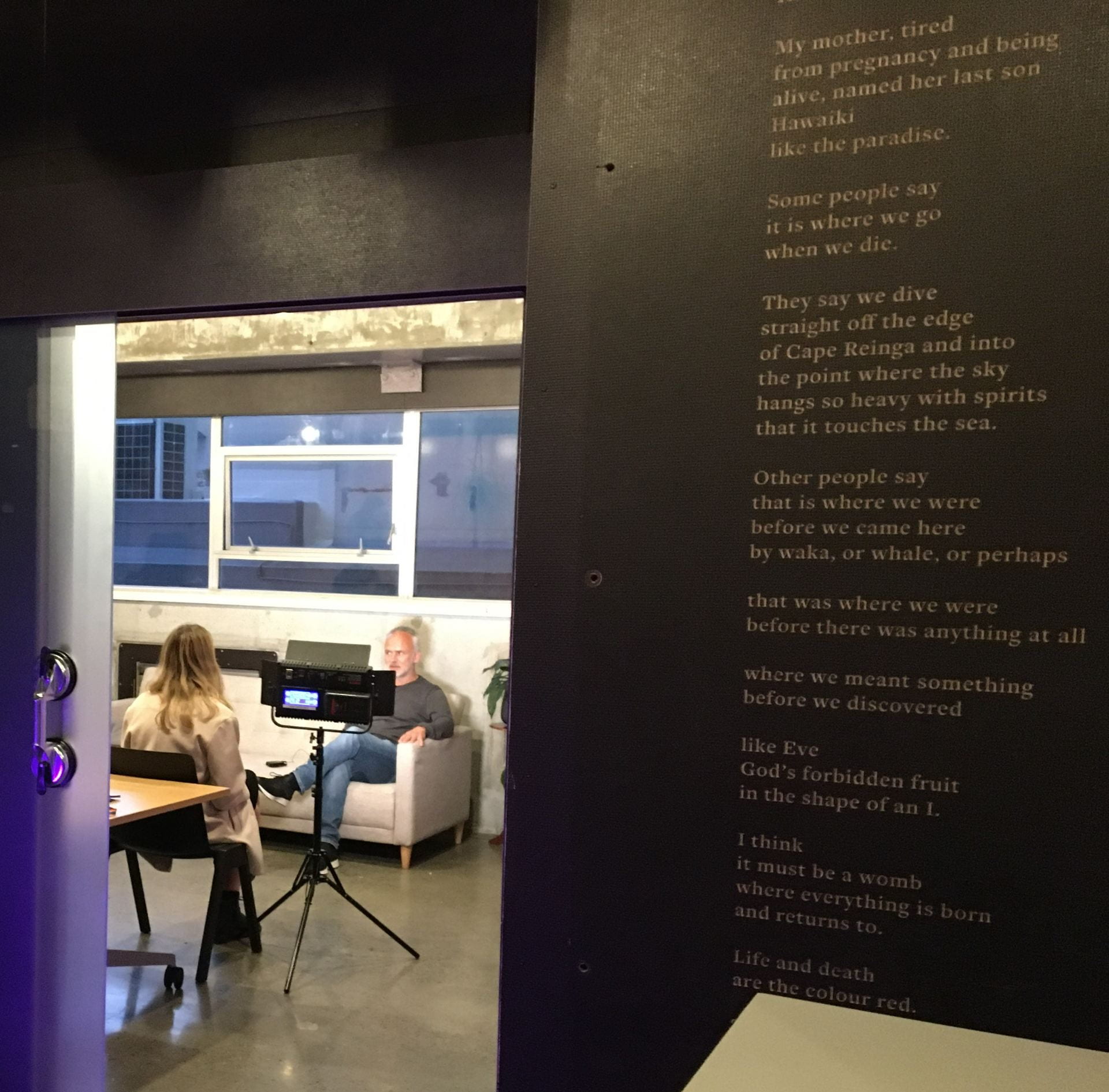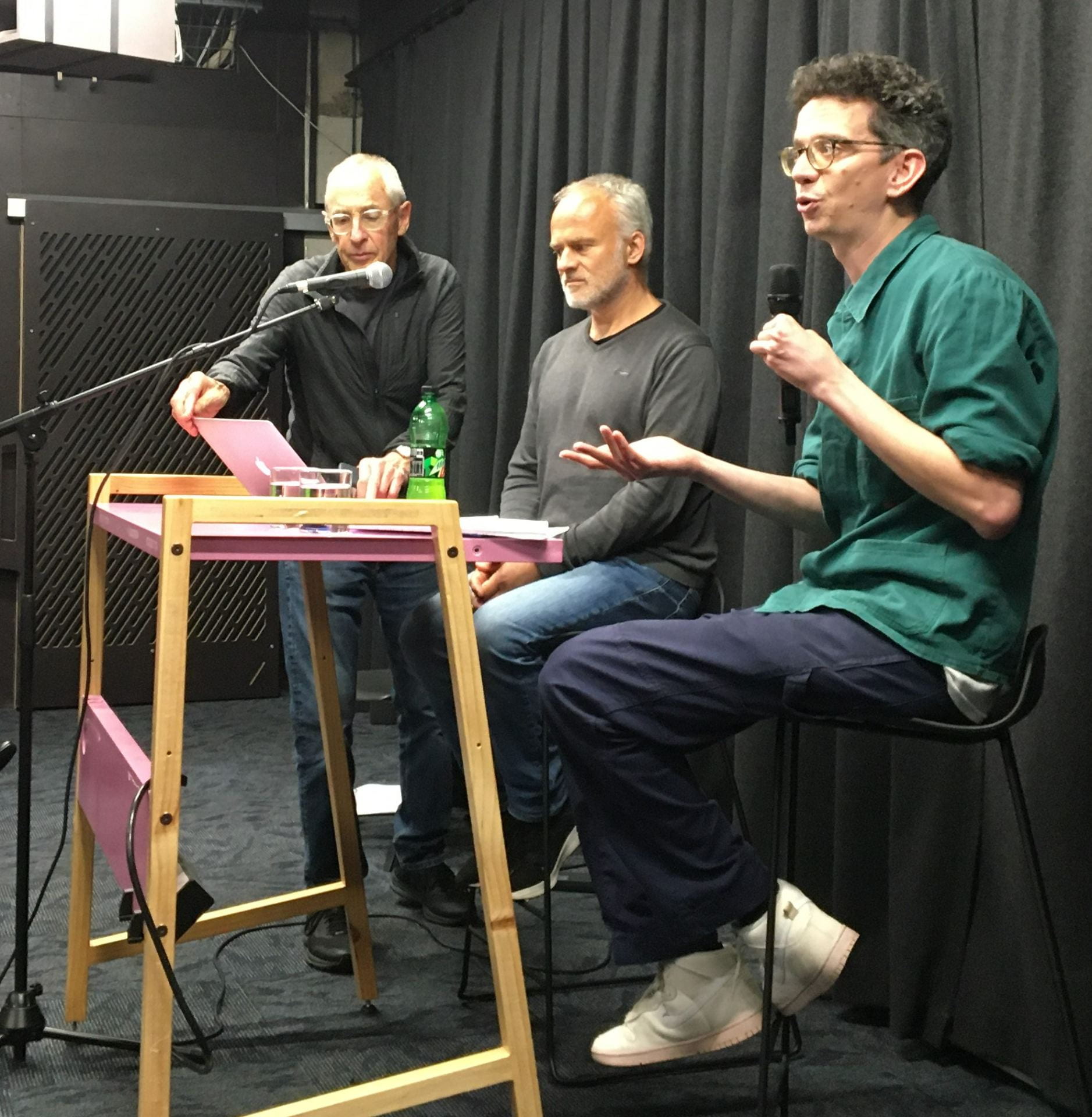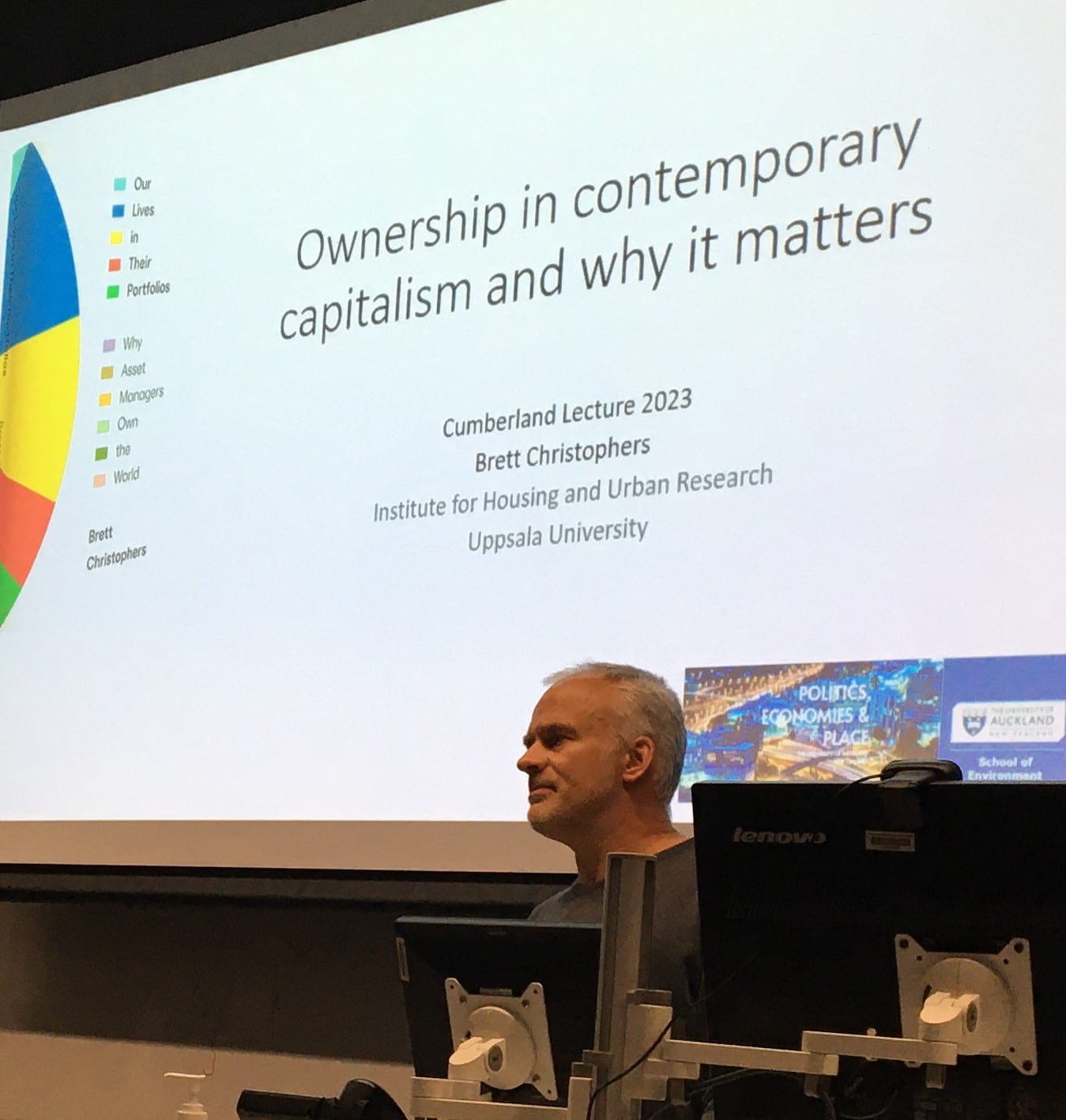Project Blog Entry #2
Aug 11, 2023
Visiting Professor & Auckland Geography alumnus Brett Christophers returns to NZ to invigorate discussions on asset ownership
At the invitation by PEP organisers, Profesor of economic and social geography at Uppsala Univeristy in Sweden and Auckland Univeristy Human Geography alumnus, Brett Chirstophers, returned to Aotearoa for a series of talks on his new book. He prompted discussion at the recent Cumberland lecture on how we might attend to the dominant asset ownership regime unfolding globally and the key actors and processes to be aware of in the New Zealand context. A brilliant article on Brett’s work is written here by Dan Hitchens. Brett also collaborated with the team working on the Marsden Consultancy project in a half day workshop designed to develop deeper insights on the work of global management consultancies in Aotearoa. Brett’s visit concided with a major announcement this week of an agreement between the New Zealand government and major asset management and finance company BlackRock to invest $2 Billion in green energy infrastructure. Brett has since been on a number of the major New Zealand news outlets providing a much needed critical take. You can read all about it here.




Project Blog Entry #1
30 Nov, 2022
At the recent New Zealand Geography Society Conference in Christchurch from November 22-25, we held a panel to share the progress of the project so far.
The panel included Angus Dowell, The University of Auckland; Russell Prince, Massey University; Tom Baker, University of Auckland; Emma Sharp, University of Auckland and John Reid, Ngai Tahu Research Centre, University Of Canterbury, and Nick Lewis, The University of Auckland.
Global management consultancies (GMCs) have become a dominant force in contemporary ‘extrastate’ governance. In this panel session, we ask what geographers might make of the prominence, size, technical capabilities, and global reach of GMCs. GMCs have expanded their remit from auditing accounts to advising on corporate organisation, evaluating investment proposals, producing strategic analyses of social change for corporate and state actors, and launching think-pieces that envisage and frame corporate and social futures. Why does this matter and what are the implications for Aotearoa that these firms have come to ‘imagineer’ our futures. What is the geography of the distinctive techno political power they exercise, and what conceptual metaphors can we imagine to capture that geography?”